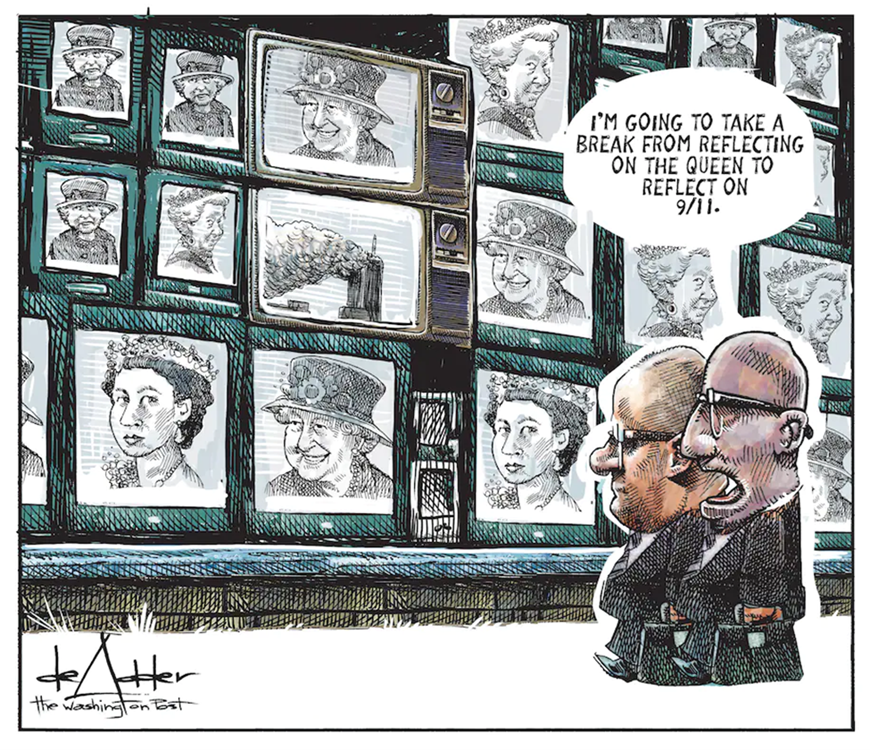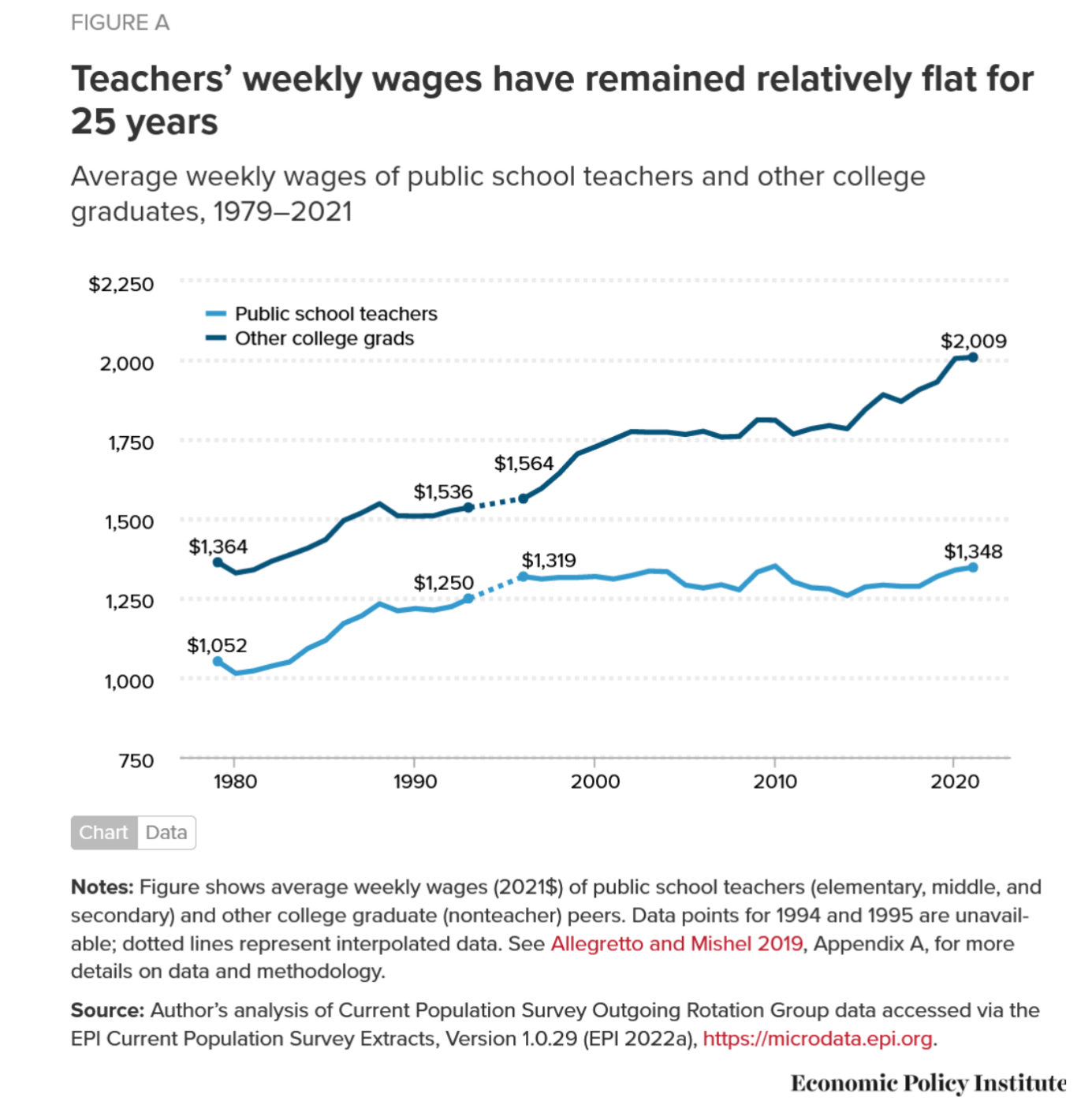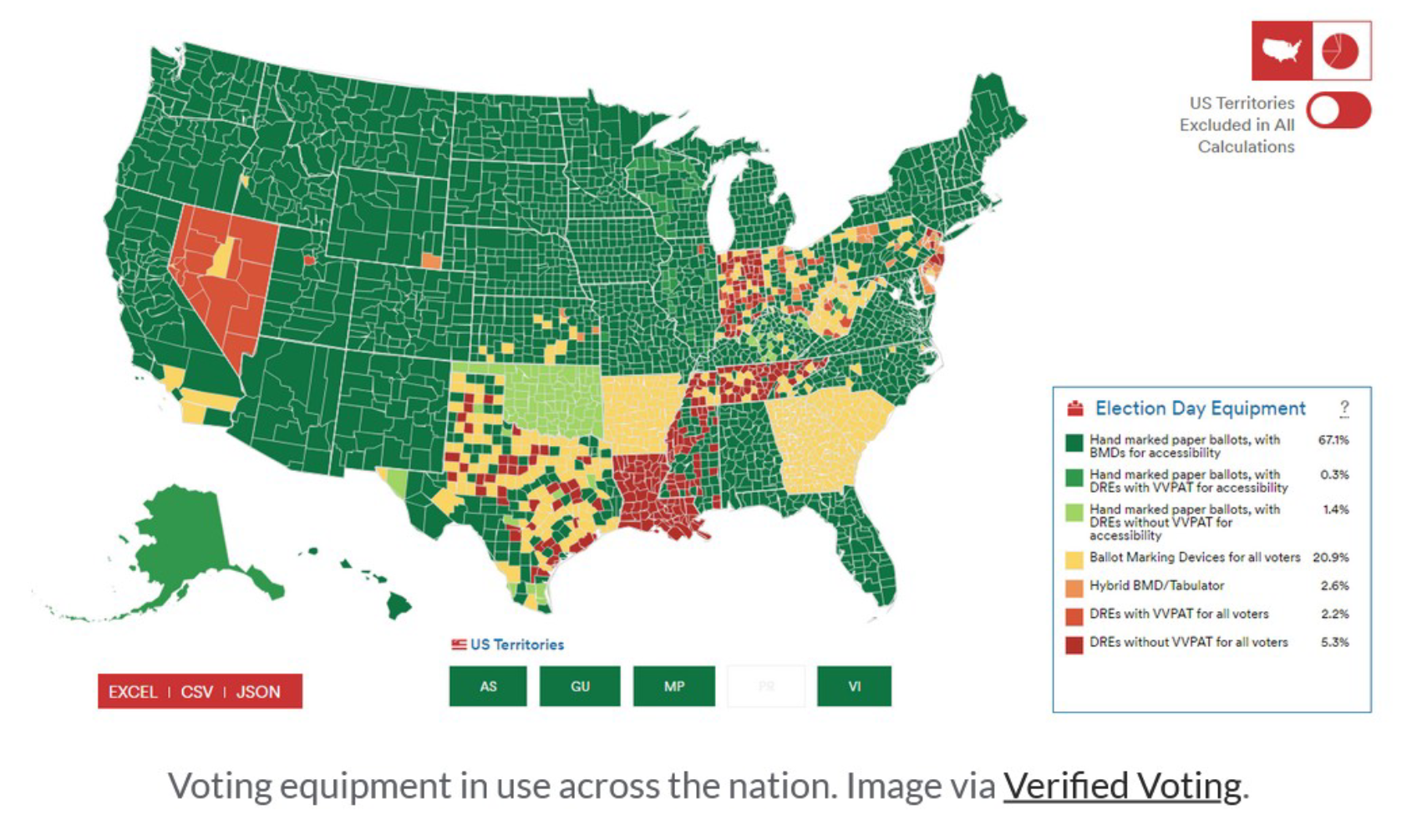The Daily Escape:

Harvest Moon, Cape Cod National Seashore, MA – September photo by Tom Baratz
With all of the media’s coverage of the comings and goings of the British monarchy, Wrongo’s certain that you missed the reviews of a new book, “Slouching Towards Utopia” by Brad DeLong, an economist from UC Berkeley. Dylan Matthews in Vox quotes DeLong from the book:
“The 140 years from 1870 to 2010 of the long twentieth century were, I strongly believe, the most consequential years of all humanity’s centuries.”
Matthews thinks it’s a bold claim. After all, homo sapiens has been around for at least 300,000 years; DeLong’s “long twentieth century” represents 0.05% of that history.
But DeLong says an incredible thing happened during that sliver of time that had eluded our species for the other 99.95% of our history: Before 1870, technological progress was glacial, but after 1870 it accelerated dramatically. More from Vox:
“DeLong reports that in 1870, an average unskilled male worker living in London could afford 5,000 calories for himself and his family on his daily wages. That was more than the 3,000 calories he could’ve afforded in 1600, a 66% increase….But by 2010, the same worker could afford 2.4 million calories a day, a nearly five hundred fold increase.”
DeLong is speaking of the nations of the rich north, not about all nations. He’s saying that food surplus was the key driver of progress. What’s implied is that the greatest difference between the wealthy and everyone else was that the poor were living on the verge of starvation. Those basic economic facts shifted once having enough to eat ceased being society’s most critical status distinction.
Another interesting statistic from the book:
“…the average number of years of a woman’s life spent either pregnant or breastfeeding…has gone down dramatically, from 20 years of a typical woman’s life in 1870 to four years today.”
Most historians present modern history as a long 19th century (from the French revolution in 1789) to the crisis of 1914. Which is then followed by a shorter 20th century ending with the fall of communism. DeLong, by contrast, argues that the period from 1870 to 2010 is best seen as a coherent whole: the first era, he argues, in which historical developments were overwhelmingly driven by economics.
From the Economist:
“…despite the Industrial Revolution…for millennia, technological improvements never yielded enough new production to outrun population growth. Incomes had stuck close to subsistence levels. Yet from around 1870, growth found a new gear, and incomes in leading economies rose to unprecedented levels, then kept climbing.”
DeLong says that economic policy in this period was a duel between the ideas of Friedrich von Hayek, who extolled the power of the free market, and Karl Polanyi, who warned that the market should serve man, not man serving the market.
Before WWI, markets generated rapid growth along with soaring inequality. People pushed back, demanding greater political rights, which they used to pursue regulation of the economy and improved social insurance.
After WWII, a mix of a market economy and a generous safety-net made for a happy marriage of Hayek and Polanyi, improved by Keynes, who said that governments should act to prevent economic recessions. This led to a three-decade post-war period of growth unmatched before or since. DeLong calls them the Thirty Glorious Years; from 1945 to 1975, as the US and Europe recovered from World War II.
But when growth sagged and inflation rose in the 1970s, voters supported politicians promising market-friendly, or “neoliberal”, economic growth reforms, like lower taxes and reduced regulation. But those reforms didn’t keep economic growth high. And they also led to even worse inequality. Still, the US and other rich countries pressed on with them, right up to the 2008 global financial crisis, which marks the end of DeLong’s 20th century.
According to a paper by Carter C. Price and Kathryn Edwards of the RAND Corporation, had the more equitable income distribution that America experienced in those thirty glorious years stayed constant, the aggregate annual income of Americans earning below the 90th percentile would have been $2.5 trillion higher in just the year 2018. That’s an amount equal to nearly 12% of GDP.
Price and Edwards say that the cumulative inequality cost for our 40-year experiment in government-supported income inequality added up to $47 trillion from 1975 through 2018. And probably equaled $50 trillion by 2020.
That’s $50 trillion that would have made the vast majority of Americans far more healthy, resilient, and financially secure.
So, the big unanswered question is: Can we again return to a period where we see both economic growth and equitable growth? It’s highly doubtful. As DeLong says in Time:
“Our current situation: in the rich countries there is enough by any reasonable standard, and yet we are all unhappy, all earnestly seeking to discover who the enemies are who have somehow stolen our rich birthright and fed us unappetizing lentil stew instead.”
The problem here is that our entire culture, economy and even our civilization is predicated around growth and people haven’t known anything else. Hope you’ve enjoyed the ride.
Time to wake up America! We need to reimagine capitalism, our taxation policies and our welfare scheme if we are to survive. Expect a rough adjustment. To help you wake up, listen, and watch Bruce Springsteen perform “Darlington County” live in London in 2013:















